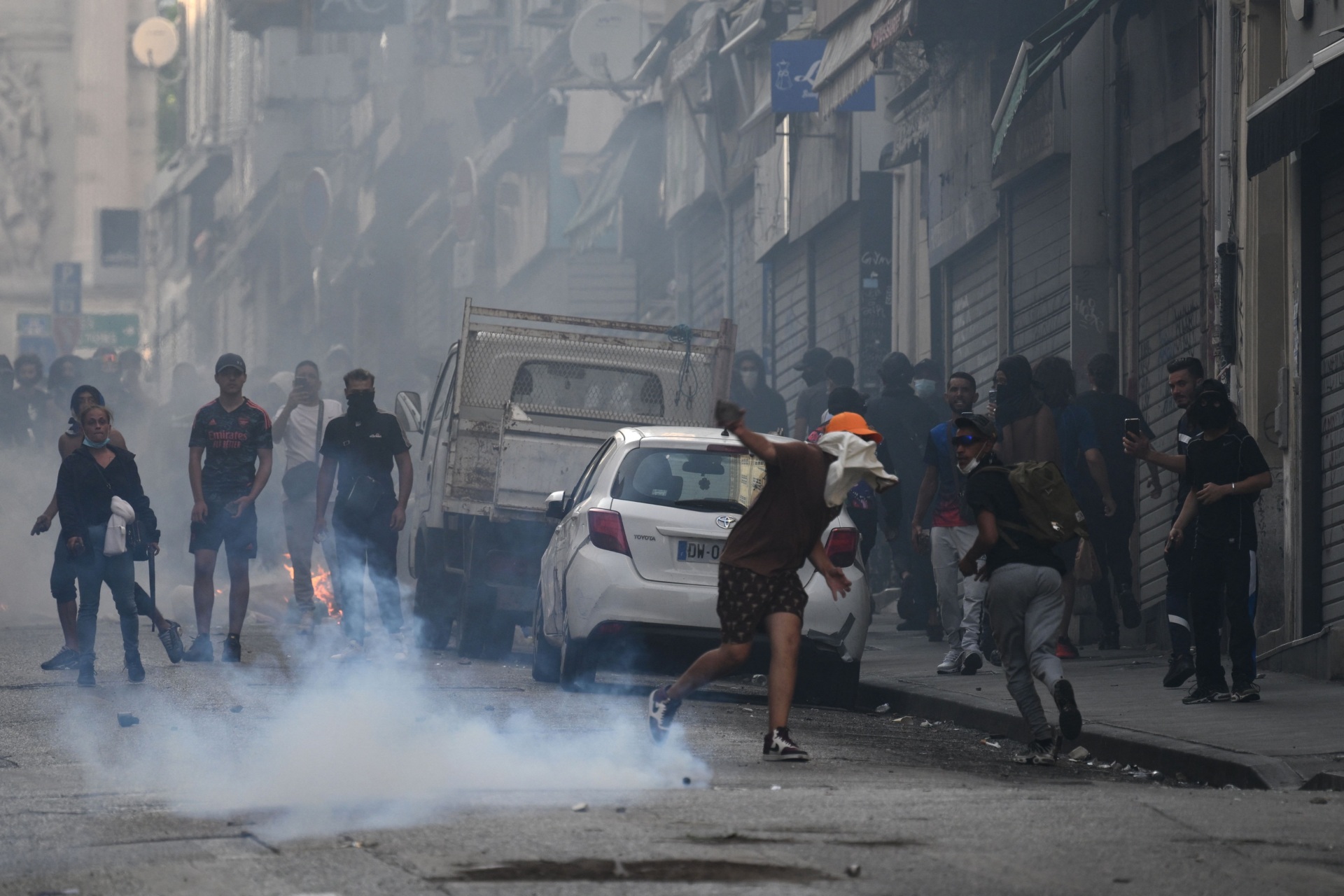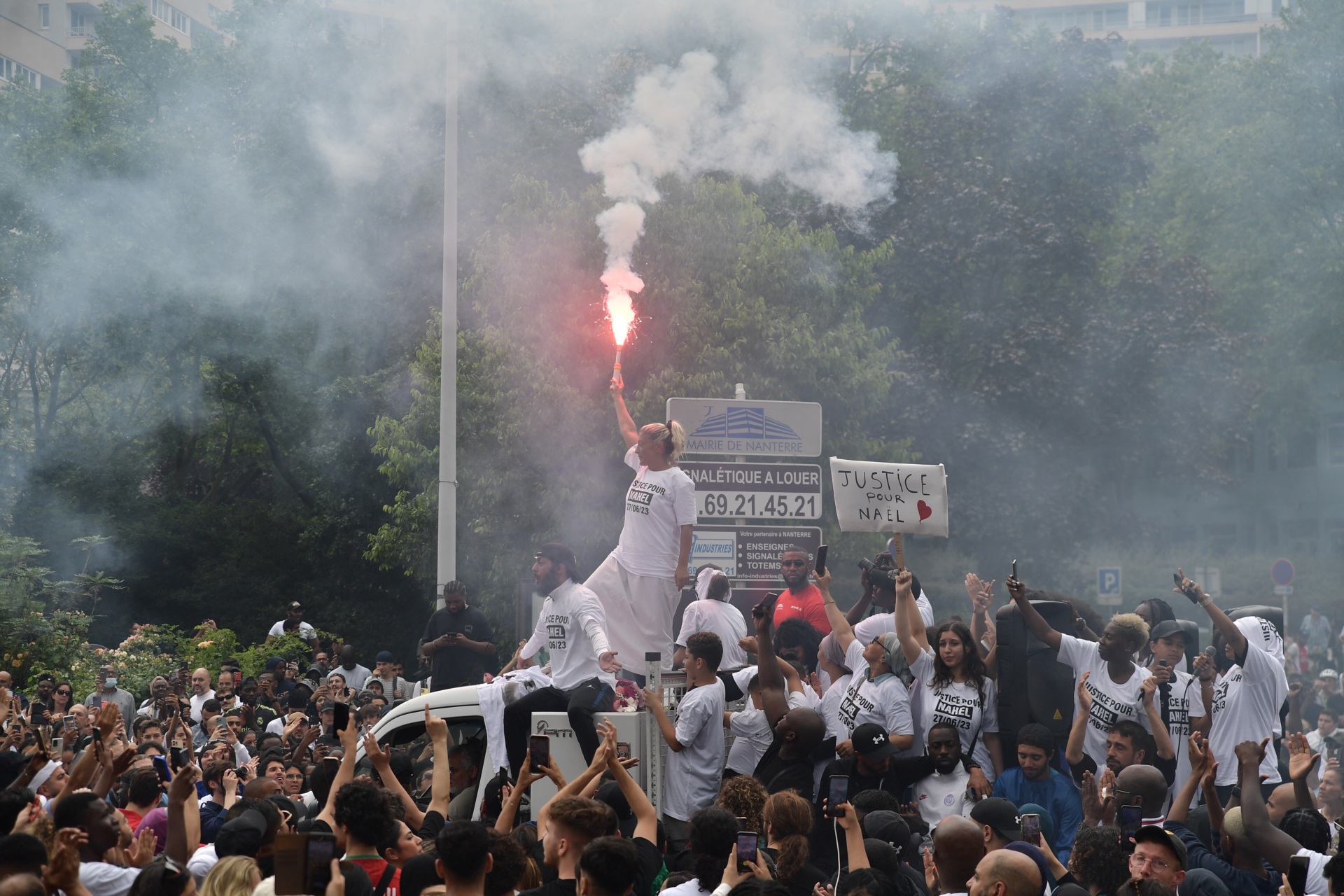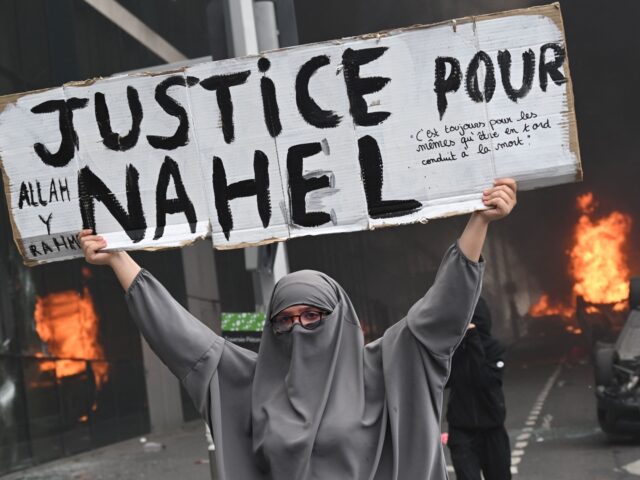The riots that recently swept across France were a result of “failures of migration policy” according to six in ten in the country, despite attempts by the political establishment to gloss over the role of mass migration in the social breakdown in France.
A survey conducted this week by Odoxa-Backbone Consulting for the Le Figaro newspaper found that the overwhelming majority of the French public (84 per cent) denounced the violence that broke out following the police killing of an Algerian-heritage teenager last month. Although the violence and rioting have subsided to some degree, nearly nine in ten (89 per cent) fear for the future of their country following the breakdown in social order.
While establishment figures, such as former President François Hollande and Interior Minister Gérald Darmanin have attempted to cast blame elsewhere, a firm majority of the French, 59 per cent, openly stated that they believe the riots were “the consequence of the failures of our migration policy”. An even larger majority, 71 per cent, said that there should be a reduction in immigration to the country.
Hollande, the former Socialist Party president whose term in office was marred by Islamic terrorism such as the Charlie Hebdo shooting, was one of the first major figures to try to counteract the idea of failed migration and assimilation, saying: “It is not a problem of immigration.”

Protesters clash with CRS riot police at the Porte d’Aix in Marseille, southern France on June 30, 2023, over the shooting of a teenage driver by French police in a Paris suburb on June 27. (Photo by CHRISTOPHE SIMON / AFP) (Photo by CHRISTOPHE SIMON/AFP via Getty Images)
In an interview with the Times of London, the ex-French president went on to try to cast blame for the riots on the coronavirus lockdowns and the ensuing financial hardships, saying that when you “shut away part of this youth, which withdrew in on itself, in on its neighbourhoods, in on its networks, in on its communities and that led to a loss of openness, of discipline and of the rules of life in society”.
“This made part of the population poorer and so when there was the unleashing of violence, there was also a desire to go and get goods that you cannot buy in ordinary times. It was not a politically structured social movement, it was an opportunity… to break into shops and take everything inside,” the socialist politician added.
A top member of President Macron’s cabinet, Interior Minister Gérald Darmanin also tried to downplay the connections between the violence and mass migration, climbing that “there were a lot of Kévins and Mattéos” among those arrested in the unrest. Darmanin went on to claim that “90 per cent” of arrests were of French citizens and that the real issue was “young offenders, not foreigners.”
However, many criticised this claim as misleading. A core tenet of the French Republic is to be officially “colour blind”, meaning that the government does not collect detailed racial statistics for those living in France. Unlike countries such as Germany, which will record if a citizen has a “migration background” — having at least one foreign parent — France does not have a firm idea of exactly how many would fall into such a category in the country.

PARIS, FRANCE – JUNE 29: The mother of 17-year-old Nahel, who was shot in the chest by police in Nanterre, attends the protest on June 29, 2023 in Paris, France. (Photo by Firas Abdullah/Anadolu Agency via Getty Images)
Therefore, the Interior Minister’s claims of nine in ten rioters being “French” has drawn considerable pushback. Stéphane Rozès of the Paris Institute of Political Studies criticised Darmanin for spreading “ambiguities”.
“These riots will in any case settle down but as the problems remain, these riots are a symptom of the disintegration of the Republic for which the rulers are the first responsible. How Algeria intervened in these riots shows the instrumentalization of anti-French sentiment both on their own soil and on ours. The Islamo leftists are the main accomplices,” he said.
Political columnist Vincent Tremolet de Villers also took aim at the assertions, stating: “No one seriously believes that there is no link between the immigration policy pursued for forty years and these riots.”
Marine Le Pen also blasted Darmanin, saying: “It is a false reality. He knows very well that an ultra-majority of people involved feel foreign or are of foreign origin.”
The longtime critic of mass migration and former presidential candidate said that France has suffered under a “totally anarchic immigration for 40 years,” which she believes has already resulted in a “secession” movement within the country among those immigrant populations with a “hatred of France”.
The breakdown in cultural cohesion has been a boon to Le Pen and her National Rally (RN) party, with a poll from the Democracy Institute of 1,000 French voters conducted during the height of the riots last week finding that 51 per cent would vote for the populist leader over President Macron, who mustered 47 per cent support.

COMMENTS
Please let us know if you're having issues with commenting.